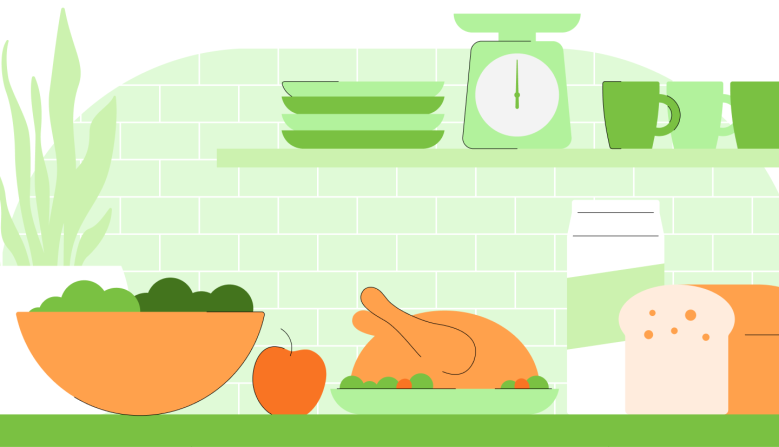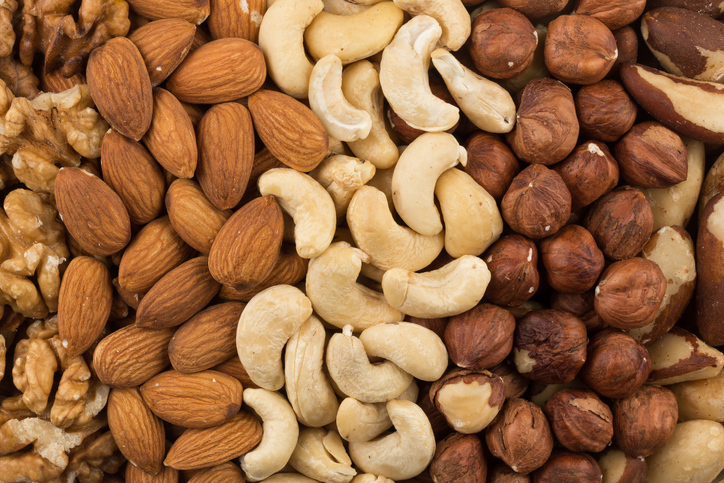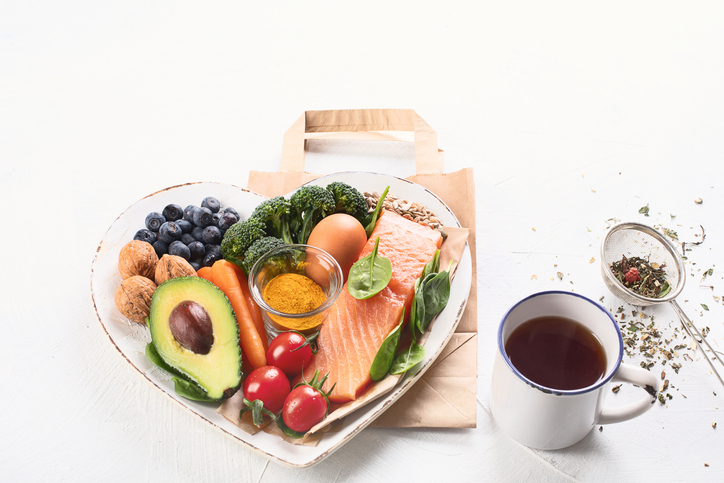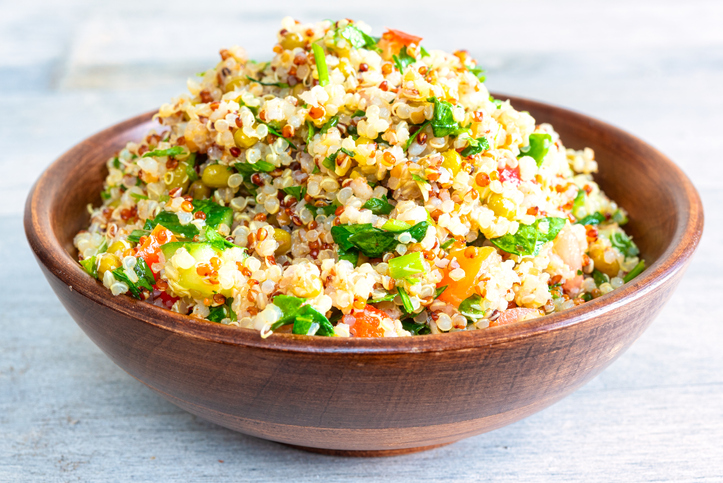Low-Carb Fruits Ranked from Lowest to Highest Carbs
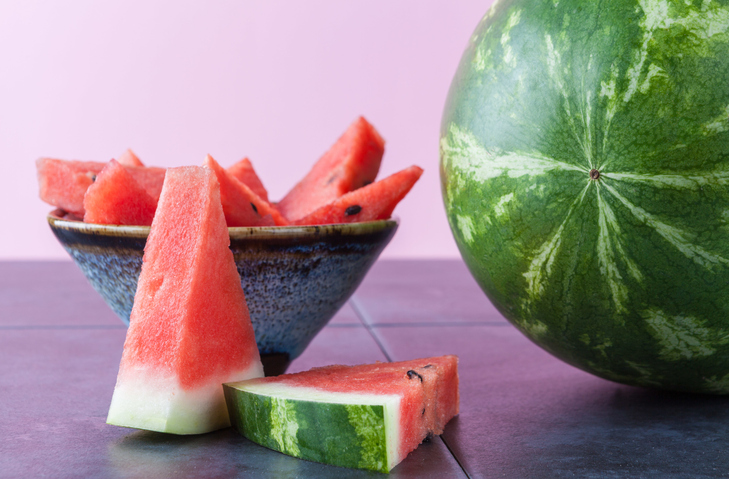


Fruit often gets a bad rap because it’s sweet and not low in carbs. But nature’s candy delivers more than just carbs in the form of natural sugar. Fruits are packed with important vitamins and minerals, plus fiber. Fiber helps slow the absorption of sugar into your bloodstream so you’re less likely to experience blood sugar spikes and lows too. Plus, eating fruit is actually associated with a lower risk of diabetes. If you’re watching your carb intake, you may be wondering which fruits are lowest in carbs. Here we rank fruit based on how many carbs you’ll get.
How many carbs are in your fruit?
We’ve ranked these common fruits based on a recommended serving size, but also provide information about how many carbs there are per 100 grams of fruit (about 3.5 ounces) to give you a better understanding when you’re (literally) comparing apples to oranges. Here they are ranked from lowest-carb fruit to highest-carb fruit.
1. Watermelon
Perfect for a hot summer day, watermelon is one of the lowest-carb fruits on this list. It can help quench your thirst and is an excellent source of vitamin C. You may be surprised to learn that watermelon has more beta carotene than berries. Beta carotene is the pigment that gives the melon its red color.
1 cup chopped watermelon: 11 grams carbs, 46 calories.
100 grams: 8 grams carbs, 30 calories.
2. Strawberries
Strawberries are low in carbs, but they also provide 163% of your daily dose of vitamin C. Research has shown they can help promote heart health and stabilize blood sugar levels as well.
1 cup sliced strawberries: 13 grams carbs, 53 calories.
100 grams: 8 grams carbs, 32 calories.
3. Cantaloupe
If you don’t regularly enjoy it already, cantaloupe is worth a spot in your eating pattern. It is an excellent source of vitamin C and potassium, which help support healthy immune function and promote heart and muscle health. Eat cantaloupe in slices or cubes, or add it to your favorite smoothie.
1 cup cubed cantaloupe: 13 grams carbs, 54 calories.
100 grams: 8 grams carbs, 34 calories.
4. Peaches
Peaches taste like the epitome of summer. With only 15 grams of carbs per one medium peach, these delectably sweet and juicy fruits are quite low in carbs. Enjoy them alone or add them to a leafy green salad.
1 medium peach: 14 grams carbs, 58 calories.
100 grams: 10 grams carbs, 42 calories.
5. Raspberries
Don’t underestimate these tiny berries. Raspberries are a nutrition powerhouse, providing close to 10 grams of fiber and two-thirds of your daily requirement of vitamin C per cup. Their tanginess is perfect for adding flavor to your morning oatmeal or parfait.
1 cup raspberries: 15 grams carbs, 64 calories.
100 grams: 12 grams carbs, 52 calories.
6. Oranges
Oranges are a popular snack choice, and that’s for a good reason. They are accessible and easy to find at most grocers, and they are perfect for people watching their carb intake, like those with diabetes. One medium orange contains 16 grams of carbs and 70 milligrams of vitamin C (116% of your daily needs).
1 medium orange: 16 grams carbs, 62 calories.
100 grams: 12 grams carbs, 47 calories.
7. Blueberries
While blueberries have slightly more carbs than raspberries, they are just as nutritious as their red-colored counterparts. They help promote heart health, support healthy aging and can even help improve your memory. Eat them as they are or add them to desserts, salads and more.
1 cup blueberries: 21 grams carbs, 84 calories.
100 grams: 15 grams carbs, 57 calories.
8. Pineapple
One cup of pineapple has 22 grams of carbs. This tropical fruit provides minerals like copper, which helps with forming and strengthening bones, alongside ample vitamin C and fiber. Eat pineapple in slices or cubes, in salsa or grilled.
1 cup cubed pineapple: 22 grams carbs, 82 calories.
100 grams: 13 grams carbs, 50 calories.
9. Mango
Mangoes are slightly higher in carbs, with 25 grams per cup, but that doesn’t make them any less nutritious. Loaded with vitamin A, mangoes can help keep skin healthy and promote healthy aging.
1 cup chopped mango: 25 grams carbs, 99 calories.
100 grams: 15 grams carbs, 60 calories.
10. Cherries
Depending on the variety and ripeness, cherries can be sweet and tart. They are so versatile that you can eat them alone or add them to savory or sweet recipes. Cherries are packed with nutrients that may help regulate blood pressure and keep your skin and immune system healthy.
1 cup cherries: 25 grams carbs, 97 calories.
100 grams: 16 grams carbs, 63 calories.
11. Apples
Despite being a higher-carb fruit, apples are a low-glycemic food that offers 4 grams of fiber. The fiber present in apples doesn’t only fill you up, but it also slows down the absorption of carbs, preventing the sudden spikes, making apples a perfect healthy midafternoon snack.
1 medium apple: 25 grams carbs, 95 calories.
100 grams: 14 grams carbs, 52 calories.
12. Bananas
Though they may be high in carbs, bananas are a highly nutritious fruit. Bananas contain fiber, potassium and some magnesium, phosphorus, vitamin B6 and vitamin C. Not to mention, bananas are the top-selling fruit in the U.S. Their affordability is one of the reasons why people add them to their grocery cart.
1 medium banana: 27 grams carbs, 105 calories.
100 grams: 23 grams carbs, 89 calories.
13. Grapes
While grapes might have the highest carb content of any fruit on this list, they are full of polyphenols, a group of antioxidants that may fight off free radicals that can damage body cells. Don’t let their high carb content deter you from enjoying them; if you are watching your carb intake, eat them in smaller portions to reap their potential protective benefits for the heart and eyes.
1 cup: 28 grams carbs, 108 calories.
100 grams: 18 grams carbs, 69 calories.
Bottom line
It’s recommended that you eat 2 cups of fruit per day as part of a healthy diet. And variety is important to get the health benefits of each fruit. Certain colors provide certain benefits—orange for eyesight and purple for brain health, for example—so choose your favorite fruits but mix them up. Fruit is a good carb and the kind you should be eating. And skip fruit juice if you’re worried about carbs. Just 1 cup has 25-plus grams of carbohydrates and none of the beneficial fiber.
© Meredith Operations Corporation. All rights reserved. Used with permission.














